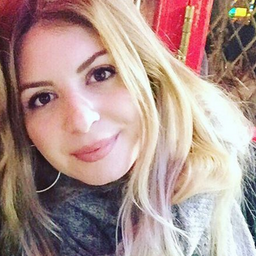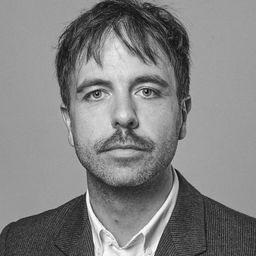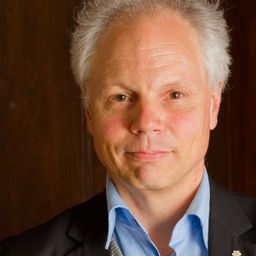
Antigoni Patsalou is a graduate of the University of Liverpool School of Architecture (2013) and is currently a second year Masters of Architecture student of the Leicester School of Architecture. She has practiced architecture in Cyprus and the United Kingdom. Her 2015 Masters dissertation ‘How Does A City Evolve In A State Of Bi-communal Infrastructure? Stripping The Architectural, Historical And Social Layers Of Nicosia And Belfast’ and her current Masters design thesis project both explore how the notion of play and the playground can be experienced through the eyes of a child in a divided city.
Sessions auxquelles Antigoni Patsalou participe
Mardi 7 Juin, 2016
Sessions auxquelles Antigoni Patsalou assiste
Vendredi 3 Juin, 2016
Qu’est-ce que le patrimoine change à Montréal? Qu’est-ce que Montréal change au patrimoine? Ce débat vise à mettre en discussion l'évolution et le devenir du patrimoine dans la métropole du Québec en interrogeant les motifs de l'attachement (ou de l'indifférence) de la société civile et des décideurs, mais aussi en questionnant les moyens dont ils disposent pour agir sur le patrimoine. Au-delà de la fameuse "pierre grise" et des matériaux expressifs de l'identité historique de Montré...
Working with archival documents and the current-day morphology of the Grey Nuns' site, Dr Cynthia Hammond, Dr Shauna Janssen, in collaboration with Dr Jill Didur, will curate a series of installations and performances that speak directly to the rich heritage of a specific urban landscape: the gardens of the Grey Nuns' Motherhouse, now part of the Concordia University downtown campus. Visitors will have the opportunity to explore the lost working gardens of the Grey Nuns. As with other such...
Samedi 4 Juin, 2016
Le patrimoine, ça change quoi ? Ou plutôt, qu'est-ce que c'est ? Et pour qui ? Ces questions sont à l'origine de cette exposition conçue par les étudiants à la maîtrise en muséologie UQAM-UdeM. L'opinion de la communauté uqamienne y est confrontée à des citations de chercheurs, avec comme résultat une mise en perspective originale du discours sur le patrimoine. __ How is heritage important? Or rather, what is heritage? And for whom? Those questions are at the core of this e...
What if we changed our views on heritage? And if heritage has already changed? While, on the global scene, states maintain their leading role in the mobilization of social and territorial histories, on the local scale, regions, neighbourhoods and parishes have changed. Citizens and communities too: they latch on to heritage to express an unprecedented range of belongings that no law seems to be able to take measures to contain, often to the discontent of...
There is no doubt that the involvement of civil society is a key element in the history of heritage. Working upstream, in line with or against the tide of state recognition, enlightened amateurs or ordinary citizens have invested time and energy in the safeguarding and enhancement of a good, a place or a practice, judged, from their point of view, as irreplaceable or remarkable. It is easy for each country or each region to find an example of a precursor, working alone or in a group, who has ...
How do borders shape heritage and its potential for change? Despite the growth of international connections in heritage studies, national, linguistic and disciplinary borders continue to structure scholarly and practical approaches to heritage. The aim of this session is therefore threefold. First we will address which borders limit our understanding of heritage today. What are the roles of linguistic, disciplinary, religious and national borders? Which methodologies are best suited to overco...
Much is being made of the perceived breakdown of the nation-state, which was historically configured as a “container” of heritage formations, adopting and perusing local traditions where possible but oppressing them where deemed unsuitable. Migration is seen as eroding the rigid boundaries of this configuration, potentially liberating identities and heritages in the process. This session addresses the relationship between critical heritage and redefinitions of self, other, community and place...
In recent decades, the growth of the World Heritage industry has necessitated the reconsideration of scale. Formerly dominated by nation-states, some influential international organizations such as UNESCO and its advisory bodies (ICOMOS and IUCN) are now taking a strong role in decision-making through policy-making and implementation. Despite the power of the transnational organization and its relation with states parties, there is a growth of regionalism and “localism” in the heritage indust...
Dimanche 5 Juin, 2016
"What does heritage change?" is a multifaceted question to which the answer(s) are in primary respects related to real-life negotiations among different groups of citizens, cultures, races, ethnic groups, sexual identities, and social classes about received, official and/or widely accepted or accomodated intangible attributes, cultural traditions, historic monuments, buildings, and other transmitted or revived historical legacies. Heritage designated by and for whom, for what motivations, an...
Lundi 6 Juin, 2016
Canal: Walking the Post-Industrial Lachine Canal (COHDS, 2013 - bilingual) is an audio-walk and booklet that takes listeners from the Atwater Market to the Saint Gabriel Lock, exploring the post-industrial transformation of a once heavily industrialized area. The Lachine Canal area has undergone dramatic changes, as mills and factories were closed and then demolished or converted into high-end condominiums. The adjoining working-class neighbourhoods ...
Cities are growingly being faced by social, economic, cultural and environmental challenges imposing health and social risks. Rapid urbanization, population growth, climate change are only some of the major global challenges that a 21st century city needs to respond to. The current challenging global environment has led to the development of new approaches to the concept of "sustainable city" a city that caters for current and future generation. For instance, the idea of smart city (a city th...
As Canada shifts from a resource-based economy to a knowledge-based economy, small communities that were established to service the primary sector are faced with a complex and unique set of challenges. They are communities built on a culture of hard work, resourcefulness, and creativity; their residents are now tasked with developing strategies to deal with a lack of employment, depopulation and resettlement. Small is premised on the notion that leveraging the rich cultur...
Mardi 7 Juin, 2016
Cities are growingly being faced by social, economic, cultural and environmental challenges imposing health and social risks. Rapid urbanization, population growth, climate change are only some of the major global challenges that a 21st century city needs to respond to. The current challenging global environment has led to the development of new approaches to the concept of "sustainable city" a city that caters for current and future generation. For instance, the idea of smart city (a city th...







